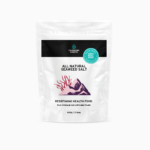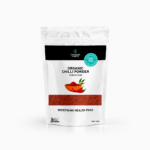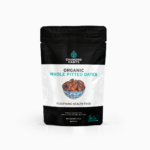Folic acid supplements could increase the risk of cancer, particularly lung cancer, researchers have found. However, folic acid has proven benefits for pregnant women, as it cuts the risk of babies being born with major deformities of the brain and spine. The doses of folic acid linked to cancer are higher, and were taken for longer, than the doses recommended for pregnant women.
What do we know already?
Our bodies use folic acid, also known as vitamin B9, to help build new cells. The natural form of the vitamin, called folate, is found in spinach, broccoli, beans, and peas. Most people get enough folate from food, but it’s recommended that women who are pregnant or thinking of having a baby take folic acid supplements. Extra folic acid cuts the risk of birth defects like spina bifida.
The benefits of folic acid are proven, but there may also be some risks. Two large, high-quality trials that started in the late 1990s hinted that folic acid might increase the risk of cancer. Researchers have now followed up the people from these trials for about six years to see if the picture has become any clearer.
What does the new study say?
Taking folic acid supplements for a long time increased people’s risk of cancer. Most people had been taking the supplements every day for around three years.
The study included more than 6,000 people. Of the people who took folic acid, 10 percent got cancer. Among people taking a placebo pill, only 8.4 percent got cancer.
The higher risk was mainly down to a larger number of people getting lung cancer. There were also more deaths from cancer, and more deaths overall, in the group of people taking folic acid.
Some people in the study were taking other B vitamins too, but it was only people with high amounts of folic acid in their blood who had a higher risk of cancer.
How reliable are the findings?
We’re looking at a good-quality study. It was originally set up to see if folic acid could prevent heart problems (it didn’t), but enough people took part to give us a reasonably good idea of how the supplements affected the risk of getting cancer.
Folic acid is added to common foods in some countries, but not in Norway where the study took place. That’s helpful, because it means researchers had a good idea of how much folic acid people in the study were getting overall.
Where does the study come from?
The study was published in the Journal of the American Medical Association, which is owned by the American Medical Association.
Funding came from lots of organisations, including the Research Council of Norway and the Norwegian Red Cross. A company called Alpharma Inc. provided the supplements, but played no role in the running of the trial.
What does this mean for me?
The research suggests that folic acid supplements have risks for some people. It’s hard to say exactly what a safe dose is. We do know that the dose used in the study is much higher than the amount recommended for pregnant women.
If you’re thinking of having a baby or are already pregnant, it’s recommended that you take 400 micrograms of folic acid every day, from the time you stop using contraception until week 12 of your pregnancy. In the study, the people who developed cancer had been taking double this dose for several years.
Even so, the supplements used in the study were within the supposedly safe limit for folic acid, which was thought to be around 1,000 micrograms per day. Most people get less than this. A typical British person probably gets around 302 micrograms a day, including natural folate from vegetables, and from folic acid added to foods like breakfast cereals.
There are proposals in the UK to start adding folic acid to flour. Many countries already do this, including the United States. At the highest level of fortification, a typical person would probably get around an extra 258 micrograms of folic acid a day.
From 1998, when the United States started to fortify flour with folic acid, the number of babies born with spine and brain defects fell by about a quarter.
What should I do now?
If you’re a woman and you’re planning to start a family or are already pregnant, taking folic acid for a short time can protect your baby against some birth defects. For everyone else, it’s likely that you get enough natural folate from food to stay healthy. Unless you’re a woman planning a family, or your doctor tells you that you’re low in folate, it probably makes sense to steer clear of folic acid supplements.
From:
Ebbing M, Bønaa KH, Nygård O, et al. Cancer incidence and mortality after treatment with folic acid and vitamin B12. Journal of the American Medical Association. 2009; 302(19): 2119-2126.
© BMJ Publishing Group Limited (“BMJ Group”) 2009
Source: Guardian.co.uk, November 18 2009.








0 Comments